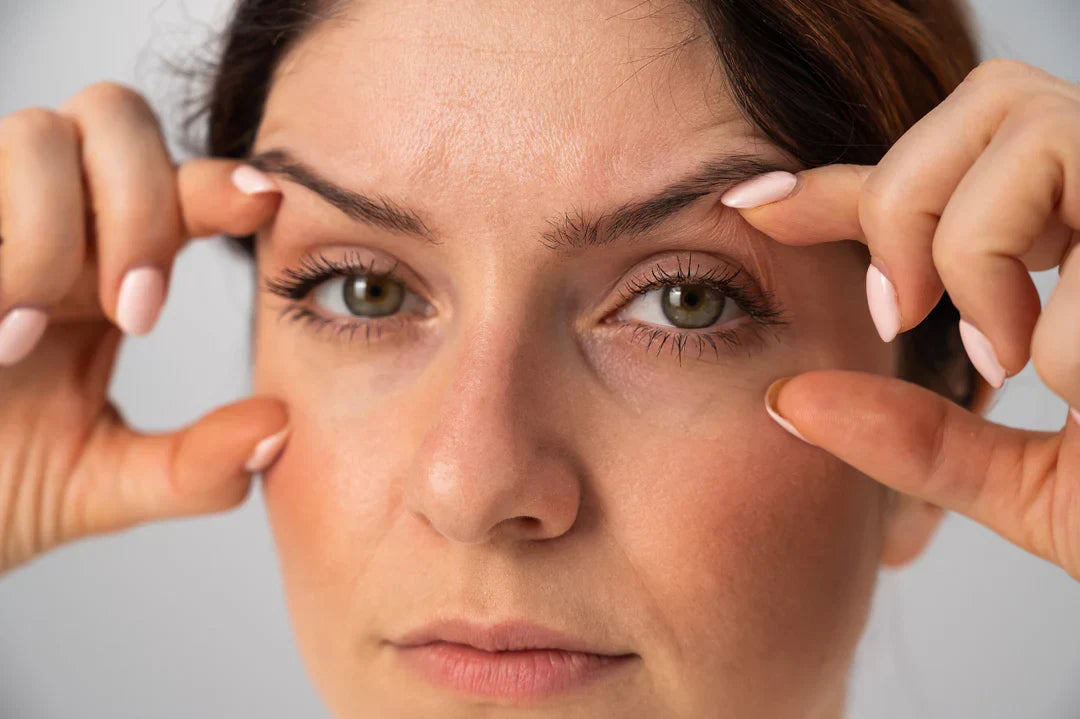
Functional Medicine Practitioner and Nutritionist, Dr Colleen Fogarty-Draper offers her expert tips on how to improve and maintain your sleep during the hot weather.
Menopause can bring about a number of changes in the body, and sleep is often one of the areas that is impacted. Firstly, it's important to understand that hormonal changes during menopause can lead to symptoms such as hot flushes and night sweats, which can disrupt sleep. Additionally, mood swings and anxiety can also contribute to sleep disturbances.
We know that menopausal women have more sensitive sleep cycles and are more sensitive to stress management issues. The body makes cortisol from progesterone, and as our hormones decrease and become highly variable depending on where we are in that journey, this can affect the stress threshold.
Many women report feeling that they can handle less than they could before in a productive way. This is because they are more likely to make excess cortisol in response to emotional stress early in the stress process, which can lead to depletion much more easily. The body is more sensitive during this time, and if you carry a high cortisol level that doesn't vary throughout the day like it's supposed to - normally it's high in the morning and then goes down - and doesn't follow this curve or is always in excess of this curve, it will also affect your sleep schedule.
To cope with these challenges, there are several strategies that can be helpful.
Maintain a healthy diet
One of the key approaches is maintaining a healthy diet. Eating a balanced diet rich in fruits, vegetables, whole grains, and lean proteins can support overall health and help manage menopause symptoms. It's also important to stay hydrated by drinking plenty of water throughout the day.
Certain foods can have a positive impact on sleep quality. For example, foods rich in magnesium, such as leafy greens, nuts, and seeds, can help relax muscles and promote better sleep. Additionally, foods high in tryptophan, such as turkey, eggs, and dairy products, can support the production of serotonin, a neurotransmitter that regulates sleep. Finishing your last meal or snack two hours before going to bed can also help so that your body is not working to digest the food at the same time you are trying to sleep.
Some women report experiencing hot flushes after consuming red meat and cow's milk products, which may be due to the hormones present in these foods or the body's reaction to certain proteins and lactose. This idea needs further research particularly regarding hormone levels during hot flushes, to understand the exact changes happening in the body. Additionally, it's crucial for women to find alternative sources of calcium if cow's milk products trigger hot flushes, as oestrogen plays a significant role in bone remodelling, and post-menopausal women are at a higher risk of osteoporosis.
I would always say you should prioritize your nutrients from foods, but that can be challenging, so I suggest taking certain good quality supplements. 300-400mg of magnesium glycinate a day, taken in the evening will help you relax before bedtime. Also, Ashwagandha has been known to treat anxiety for many years. The result of treating anxiety, and stress-related anxiety, is improved sleep. Ashwagandha helps us sleep as a secondary result of treating our stress. I like Issviva ZZZZ’s as they include a therapeutic level of Ashwagandha and people report they work well to improve sleep. Sage and red clover have also been shown in trials to help with hot flushes and night sweats that may disrupt sleep.
Think about your evening drinks
Avoiding caffeine and alcohol before bedtime is crucial, as these substances can interfere with sleep. Instead, opt for herbal teas like chamomile or valerian root, which have calming properties and can promote relaxation.
Keep on moving
Regular physical activity is another important factor. Exercise can help reduce stress and improve sleep quality. Aim for at least 30 minutes of moderate exercise most days of the week but try to avoid vigorous exercise close to bedtime.
Improve your sleep environment
Creating a comfortable sleep environment is also essential. Keep your bedroom cool and dark and use lightweight bedding to stay comfortable. Practicing relaxation techniques such as deep breathing, meditation, or progressive muscle relaxation can help calm the mind and prepare the body for sleep.
Night sweats can be managed by wearing lightweight clothing, keeping the environment cool, using fans, and avoiding hot beverages and spicy foods during the day. Issviva’s cooling Bra Inserts can be worn comfortably at night inside a crop top. They’re re-useable and filled with a cooling gel that lasts through the night providing relief during those warmer months.
Develop a regular routine
Lastly, it's important to establish a consistent sleep routine. Going to bed and waking up at the same time each day can help regulate your body's internal clock and improve sleep quality.
Discover more summer survival tips and advice via our magazine.
You May Also Like
To learn more go to Academy
Join us on our academy of wellness and insightful medical information tailored just for you.
Discover expert tips, resources, and community support. Let's empower ourselves together.



















Join the discussion
Comments
No comments yet. Be the first to comment!